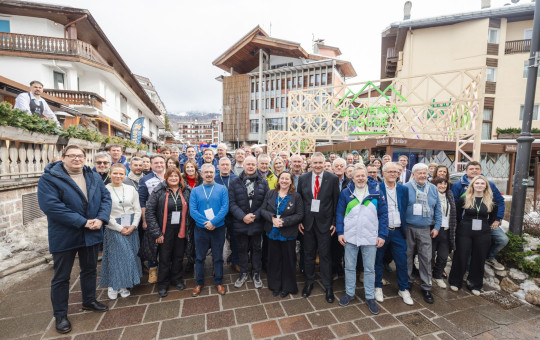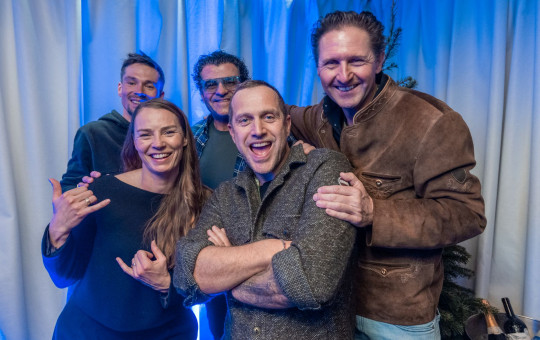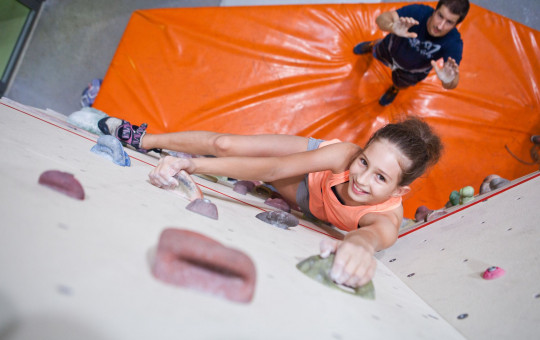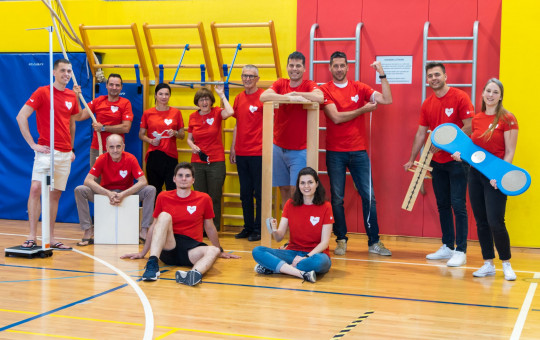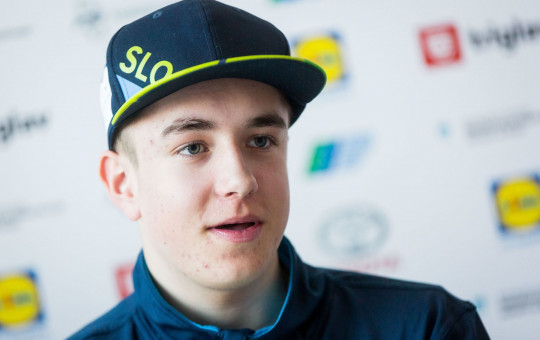Date: 5. August 2024
Time to read: 3 min
In roundtable discussion at the Slovenia House in Paris, we talked about the end of an athletic career, a significant milestone for any athlete. Former top skier and ambassador of the "I Feel Slovenia" national brand Tina Maze, and sports stars Urška Žolnir Jugovar, Goran Dragić, and former Montenegrin volleyball player Igor Vušurović shared their experiences and the challenges and fears they faced during this transition. The discussion was moderated by former kayaker and now successful businessman Andraž Vehovar.
The opening minutes were given to special guest Rose Voisk. The 94-year-old Olympian, born Ruža Vojsk in Maribor, competed at the 1948 London Olympics as a member of the Yugoslav gymnastics team. She shared some memories from those games, mentioning the wonderful opening ceremony and the importance of physical activity for vitality. "I am happy and honoured to be here with you," she greeted the participants in Slovenian.
-
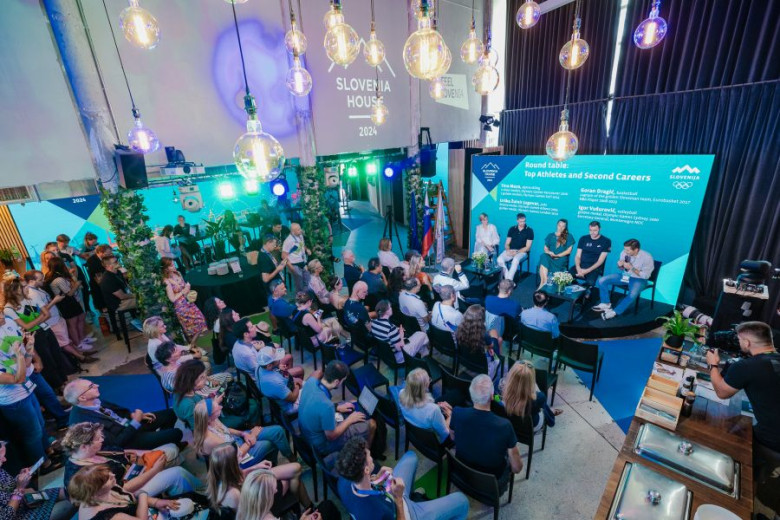 Former top skier and ambassador of the "I Feel Slovenia" national brand Tina Maze, and sports stars Urška Žolnir Jugovar, Goran Dragić, and former Montenegrin volleyball player Igor Vušurović shared their experiences and the challenges and fears they faced during this transition. Photo: Anže Furlan/SOC
Former top skier and ambassador of the "I Feel Slovenia" national brand Tina Maze, and sports stars Urška Žolnir Jugovar, Goran Dragić, and former Montenegrin volleyball player Igor Vušurović shared their experiences and the challenges and fears they faced during this transition. Photo: Anže Furlan/SOC
"During our careers, we athletes often think that sports are the most important thing in life, but they are not. Far from it. Young athletes need to know and understand that there is life after sports, and they need to be prepared for it. During their careers, they face injuries, overtraining, and even doping," Andraž Vehovar emphasized. He asked the speakers about their fears before ending their careers.
"My biggest fear when ending my sports career was whether I could perform another job. At that time, I knew I could work as a judo coach and did so for four years. Later, I decided to continue my education, successfully completing that chapter. In the meantime, I started a family, and my goal was fulfilled," said former judoka Urška Žolnir Jugovar, adding that she couldn't imagine what else she could do after her sports career. "I am a person who needs adrenaline and challenges. Once you achieve the greatest sports successes, you wish to be similarly successful in a new profession," she added.
Igor Vušurović, a member of Montenegro's gold medal volleyball team in Sydney 2000, said that at the end of the day, we all want to do what we love in life. "To truly feel a special passion, a connection, and to have work that brings new challenges every day that we can successfully overcome."
He highlighted the importance of maintaining a positive mindset. When he started working for the Montenegrin Olympic Committee, he faced many challenges. Despite knowing nothing about marketing initially, he found his way. In Montenegro, he noticed that athletes are often not creative enough, as their schedules and lives are strictly structured during their careers. "It's important for athletes to be empowered after their careers," he said.
Goran Dragić, captain of the golden basketball team, said he planned to end his career at this point. "Now I want to give back at least some of what I've learned to those just starting out. I love teaching kids and sharing my experiences with them," he said.
"The most important thing is to find something you love in life, a passion that makes you happy. Of course, I will miss the excitement of competing in front of 30,000 spectators, but I know it's not possible anymore. Athletes need to find what they love next," he added.
Tina Maze, Slovenia's greatest skier of all time, shared her post-career experiences. "We must retain the sporting part as former athletes because we will never find the same adrenaline and something special in what we do. Work is part of our lives."
Maze also emphasized the importance of mental health. "It's important to share our feelings and know how to face them. We are all different, reacting differently, and that's why everyone is important. I might have the greatest fears in this room, but I faced them," she said, candidly discussing her fears on the slopes and the need to consider the specifics of each sport.
"It's important to talk about problems, especially if the ideas come from athletes better than you, who pass these ideas forward. Young athletes need to see how older athletes have managed and what the way forward is. Overcoming fear is a crucial part of sports," Maze shared.
Maze also noted that she continued her education and completed her studies, studying for ten years, longer than others, but she finished. "My life goal was architecture, but due to my demanding career, I chose the Faculty of Education," she admitted.
She praised the Slovenian education system, which allowed her to study alongside her sports career and highlighted her positive experiences.
Goran Dragić pointed out the effectiveness of the NBA model as a good practice. "From day one, they teach you about life after your career. We all know that you could stop tomorrow, and that there is more to life than sports. You want to be the best on the court, but you also need to take time for the future. These things are important, and former athletes need to show the new generations the way," Dragić concluded.

